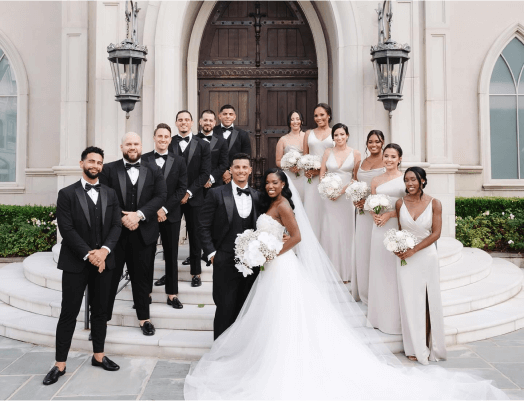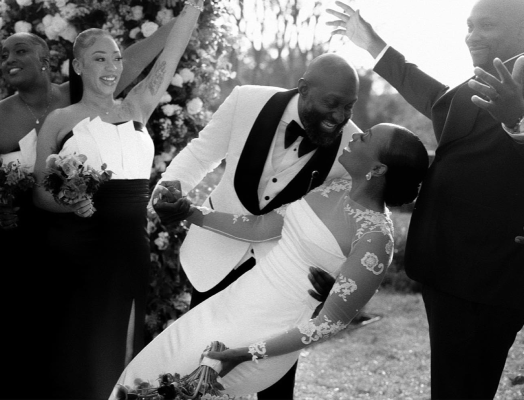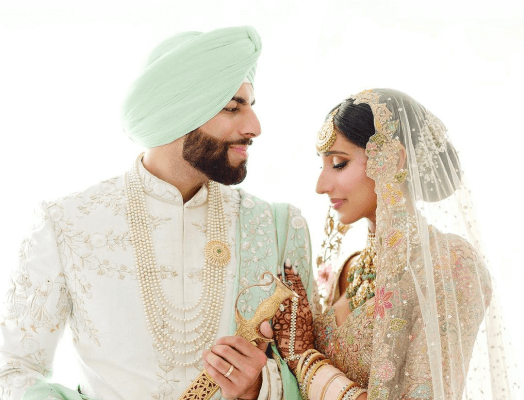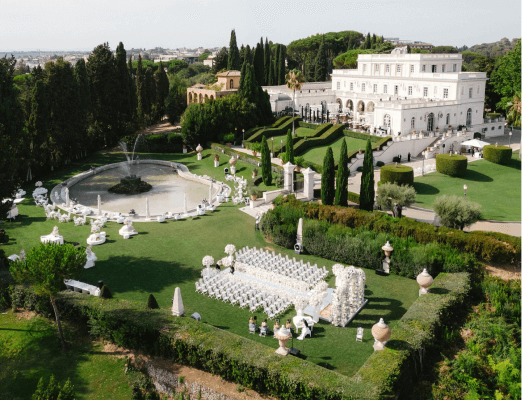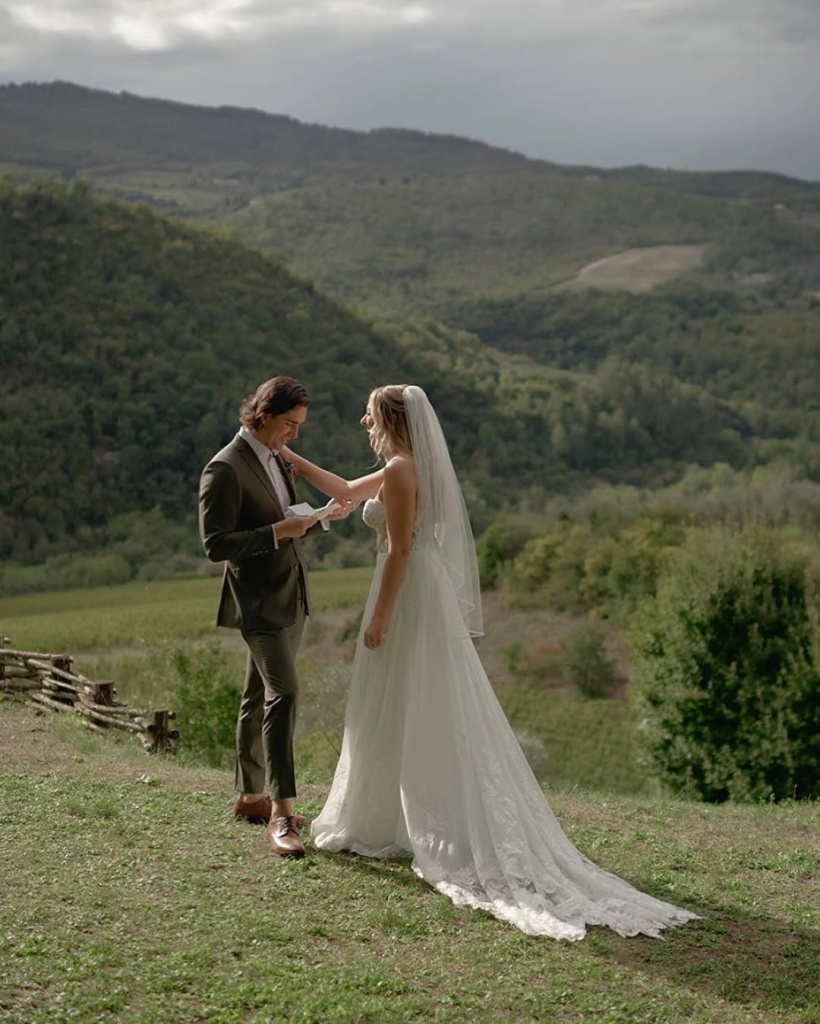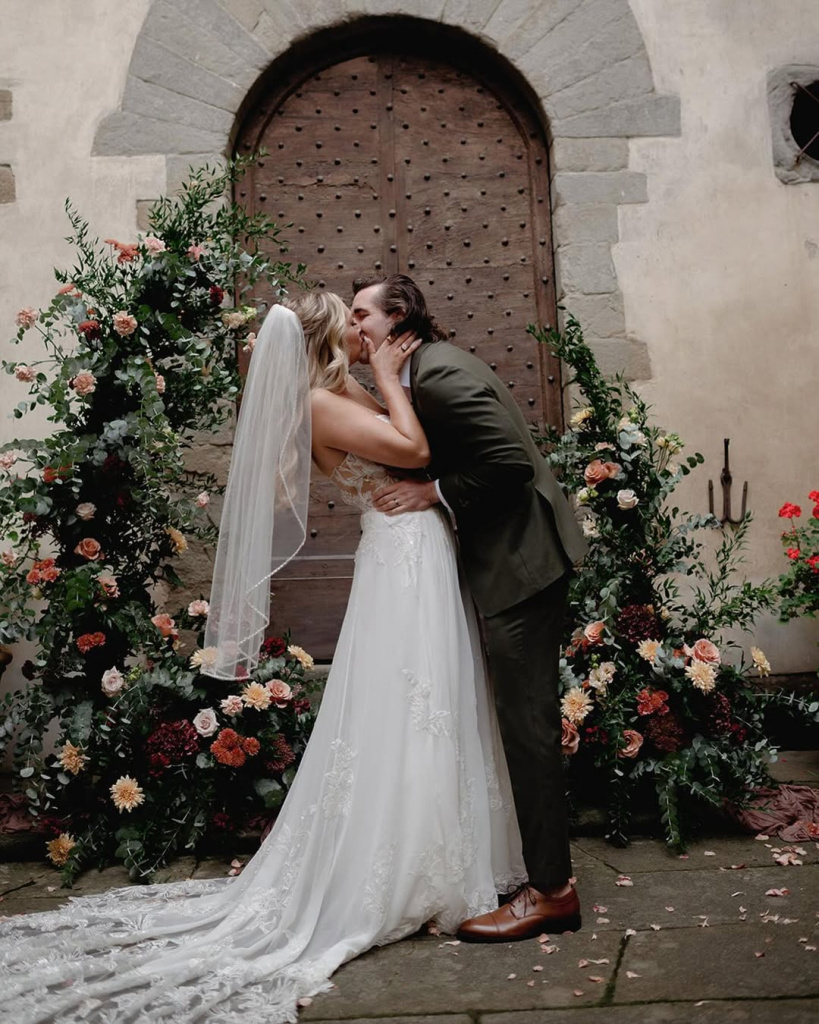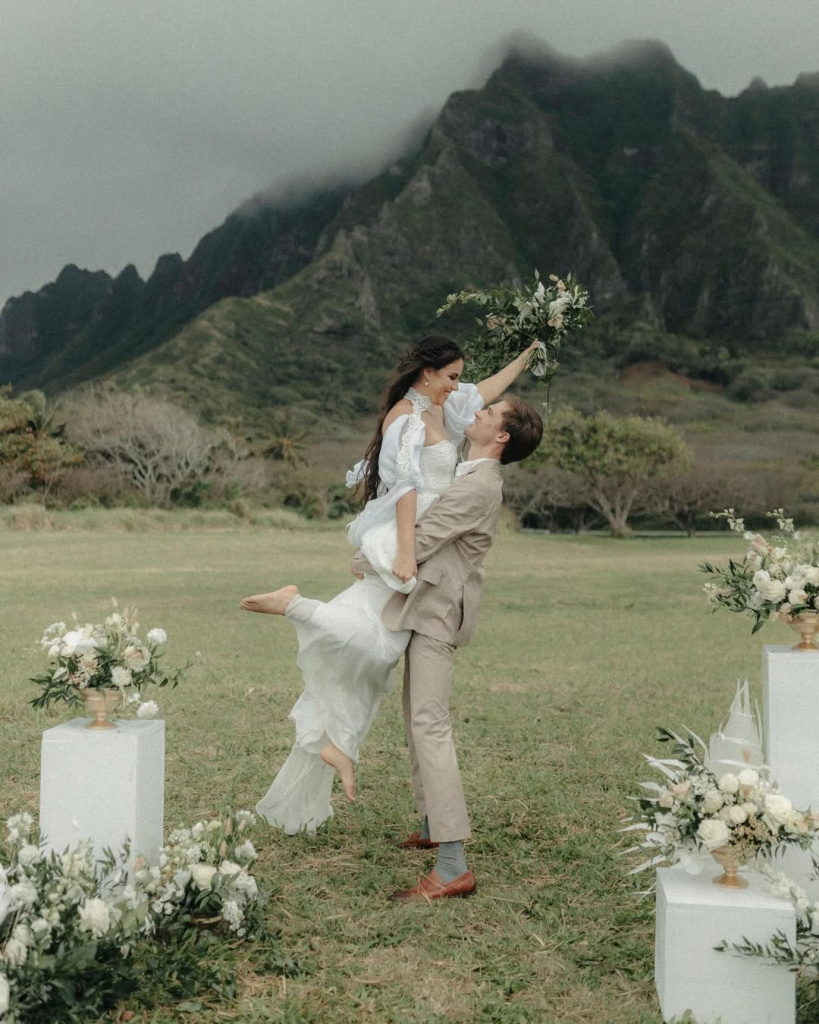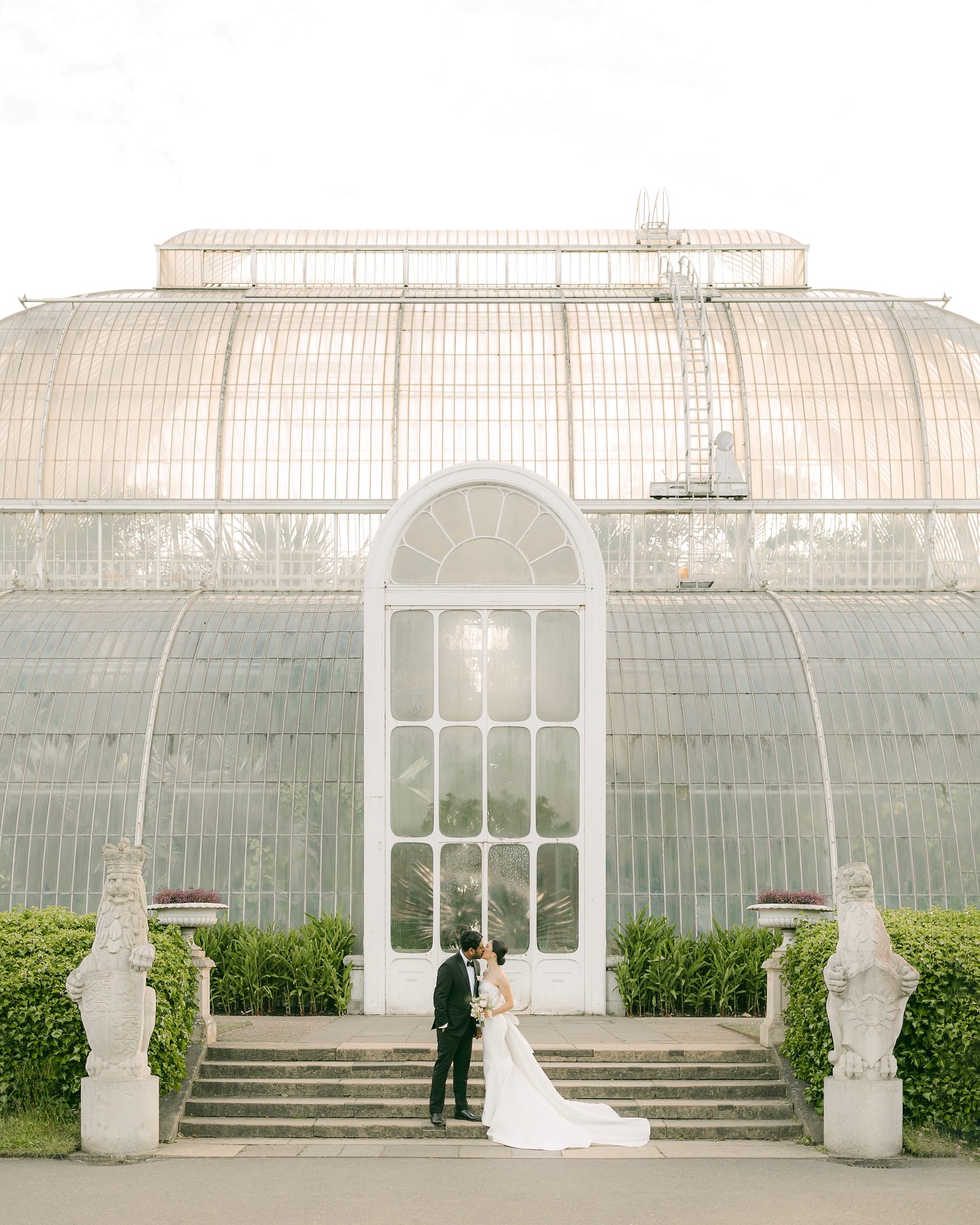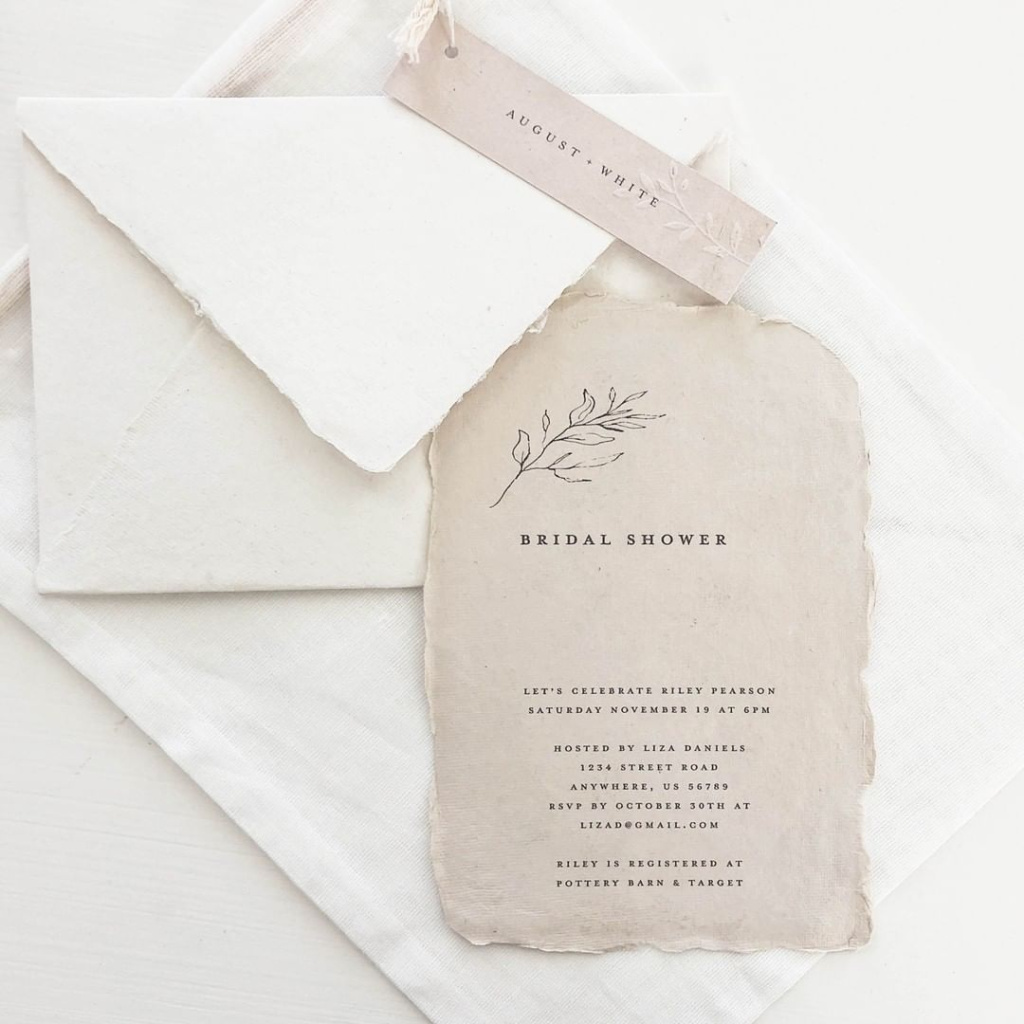A Worldwide Tour of Traditional Wedding Vows
- Author: Natali Grace Levine
- Reading time: 7 min 35 sec
- Publication date: 07/16/2024
- Updated: 12/22/2025
- Varieties of Vow Exchanges
- Christian Wedding Vows: A Timeless Commitment
- Muslim Wedding Vows: The Nikah Ceremony
- Hindu Wedding Vows: The Seven Sacred Steps
- Jewish Wedding Vows: The Circle of Trust
- Buddhist Wedding Vows: A Path of Love and Harmony
- Sikh Wedding Vows: The Four Laavan of Anand Karaj
- Quaker Wedding Vows: The Silent Affirmation
- Shinto Wedding Vows: The Essence of Simplicity
- Pagan Wedding Vows: Celebrating Natural and Spiritual Elements
- Catholic Wedding Vows: The Sacrament of Matrimony
- Protestant Wedding Vows: Words of Devotion and Faith
- Bahá'í Wedding Vows: Unity in Diversity
- Non-Religious Wedding Vows: Personal Promises for a Secular Ceremony
- Interfaith Wedding Vows: Embracing Shared Values
- Nondenominational Wedding Vows: Universal Commitments for All
Wedding vows are the heart and soul of any marriage ceremony. These solemn promises define not just the commitment of the couple but also reflect the cultural, spiritual, and personal significance of their union. Whether spoken in a grand cathedral, a quiet backyard, or on a sandy beach, each vow carries the essence of the couple's future life together. But how these vows are performed can vary dramatically across different cultures and religions. This rich variety adds depth and beauty to the ceremonies, making each wedding unique and profoundly meaningful.
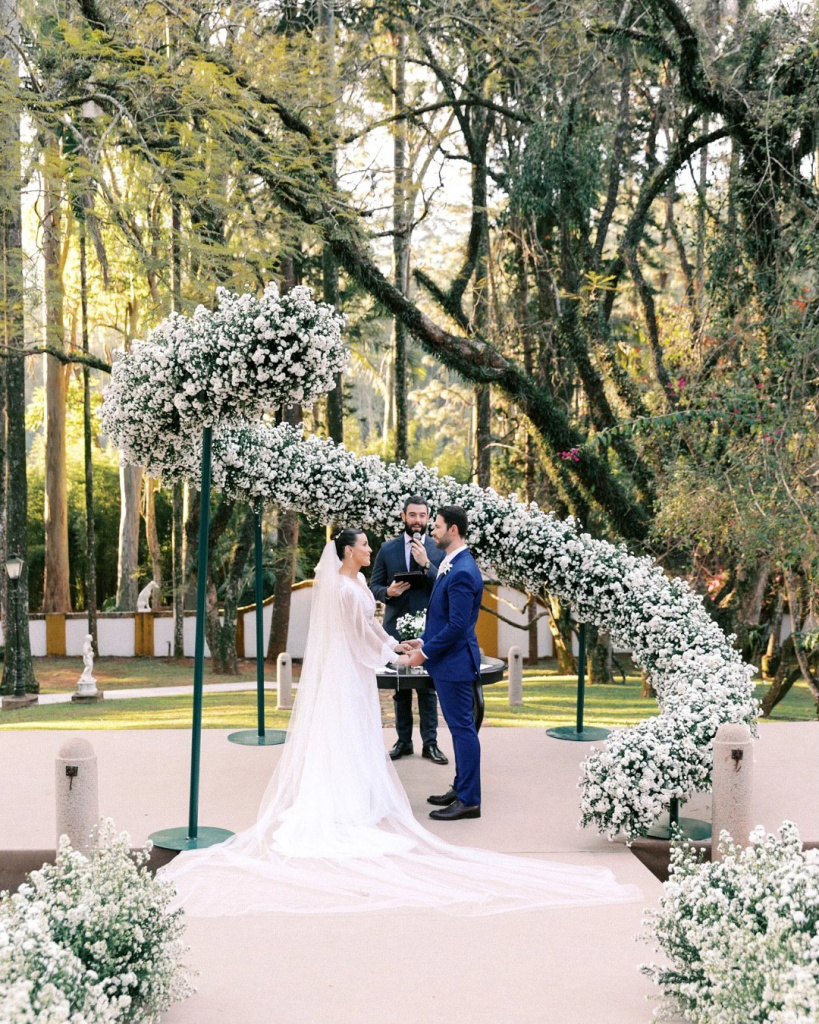
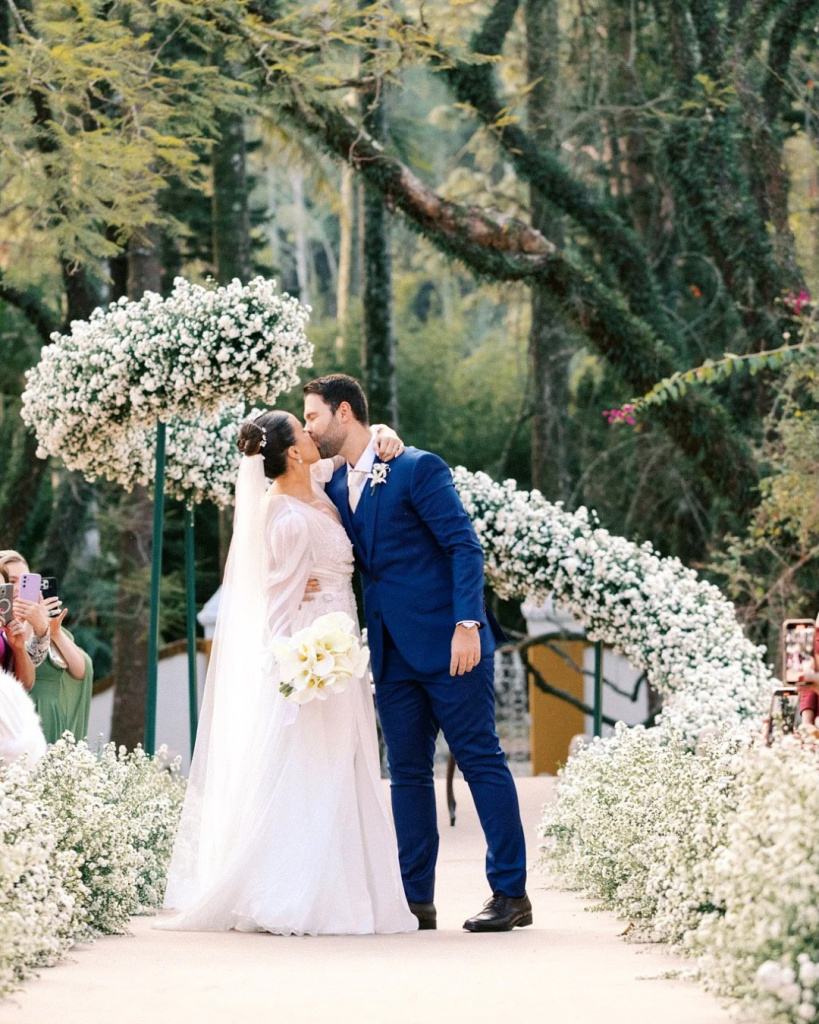
Find Your Perfect Wedding Vendors
Varieties of Vow Exchanges
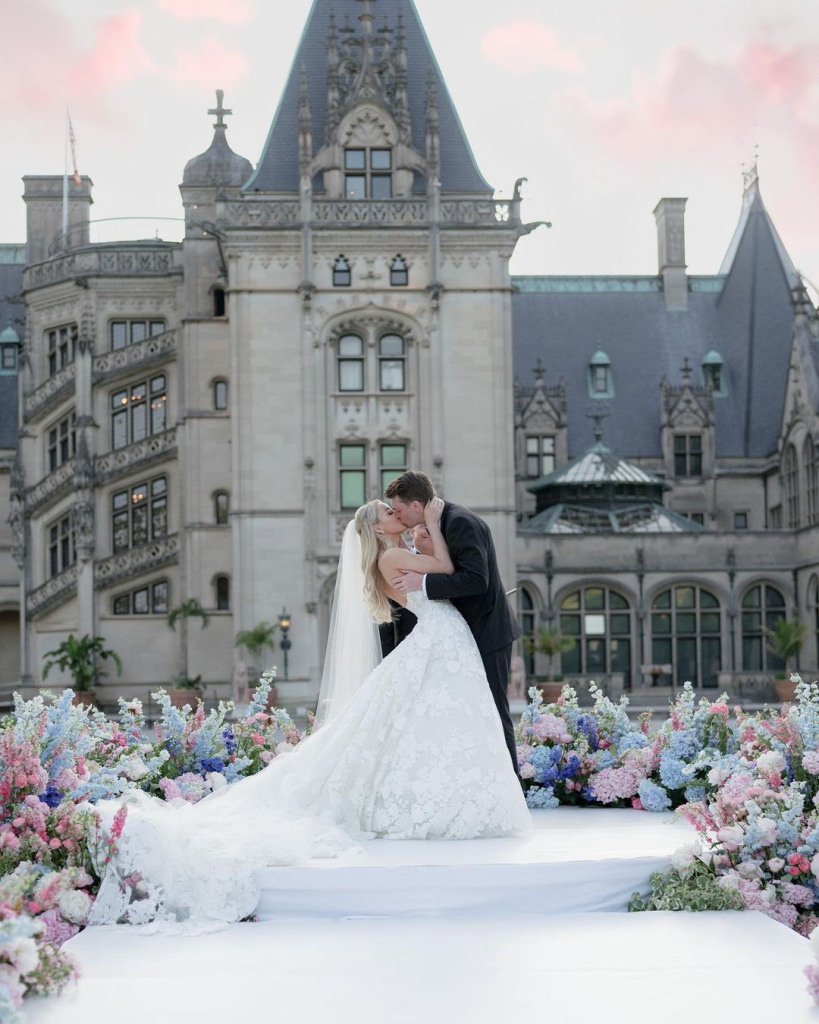
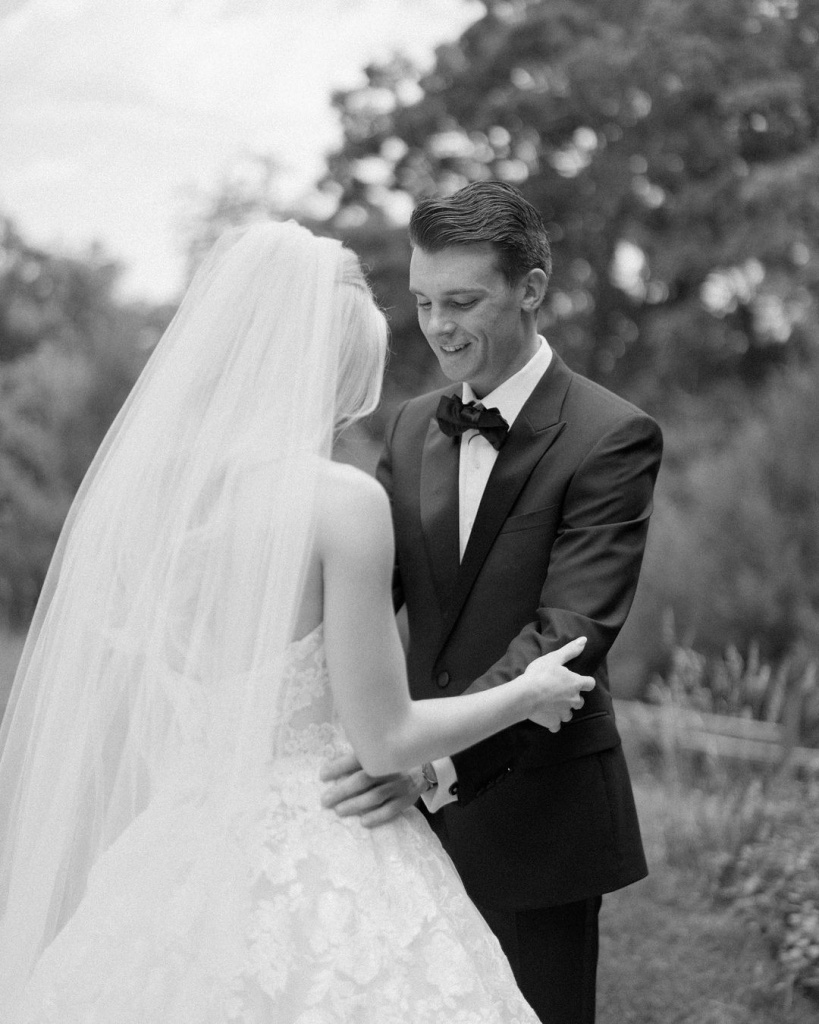
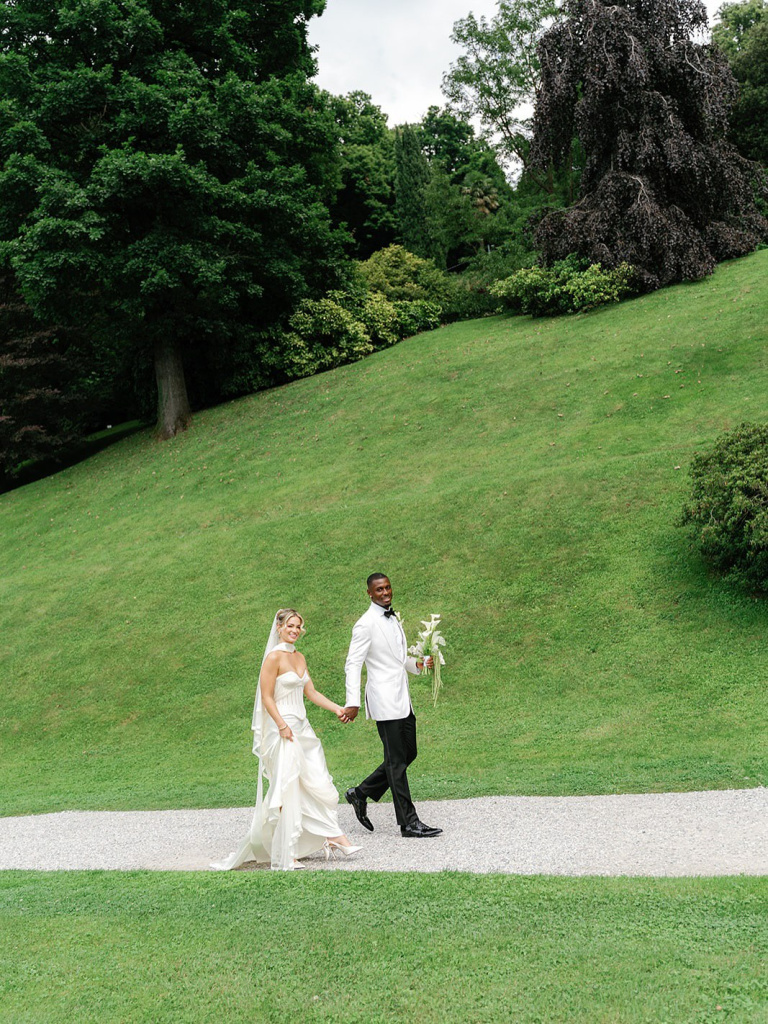
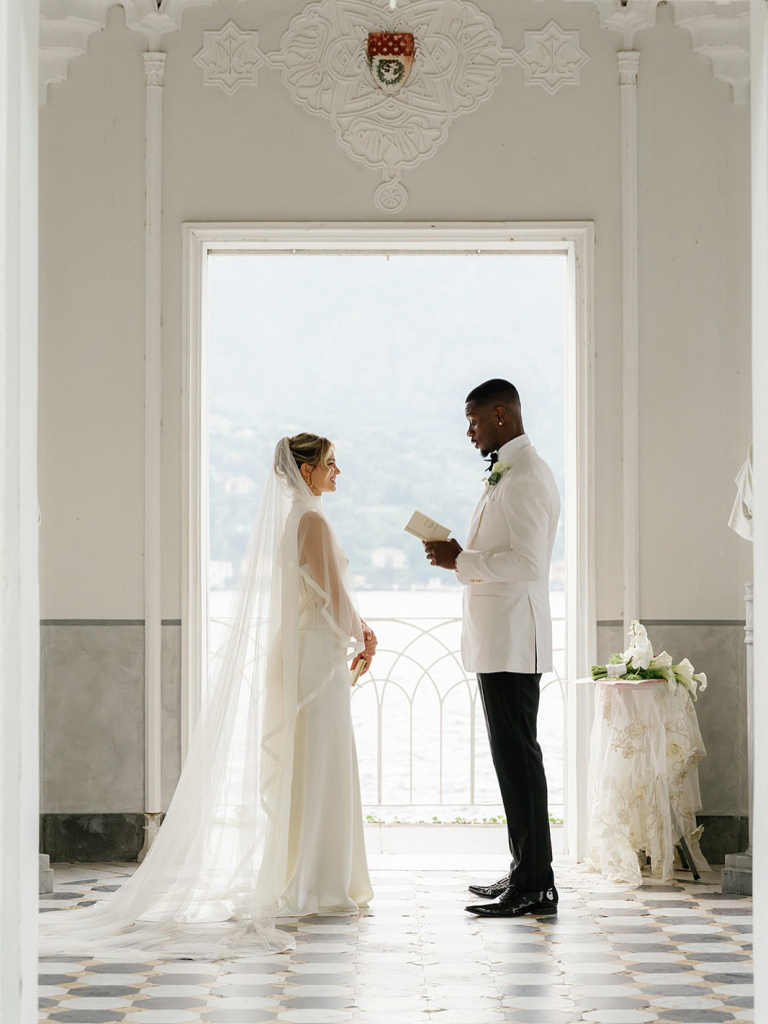
Let's explore some of the diverse ways that couples around the world exchange their vows, from traditional spoken promises to more modern, interactive formats. Each method offers a unique way to celebrate the union, emphasizing different aspects of the commitment being made. Here are a few varieties of vow exchanges that illustrate the richness and diversity of wedding traditions.
Monologue-Style Vows
Many couples choose to express their commitments through monologue-style vows. This approach allows each individual to speak uninterrupted, offering a heartfelt and often deeply personal testament of their love and commitment. These vows can be traditional, following the wording handed down through generations, or customized to suit the couple’s unique relationship. The monologue format gives a moment for each partner to express their promises in a deeply individual manner, often leading to powerful emotional responses from both the couple and their guests.
Dialogue-Style Vows
Contrasting with the monologue style, some traditions incorporate dialogue-style vows. These are interactive, with the couple exchanging words in a call-and-response format that can involve the officiant or the entire assembly. This style emphasizes partnership and mutual agreement, reinforcing the idea of marriage as a cooperative bond between equals.
Silent or Symbolic Vows
In some cultures, vows are more about action than words. Silent or symbolic vows may involve rituals like handfasting, sand blending, or circling an altar. These actions speak volumes, symbolizing the union without spoken words. This method can be particularly poignant, embodying the adage that "actions speak louder than words."
Community Affirmation
Some ceremonies extend the exchange of vows to include the community or family members. This can involve the community pledging their support to the new union, reinforcing the idea that marriage is not just a bond between two individuals but a woven thread in the fabric of a larger communal tapestry.
The way vows are delivered can also vary with the setting and the officiant’s style. Whether it’s a religious leader guiding the vows in a traditional ceremony or a friend or family member officiating a more personalized wedding, the tone, and delivery can deeply influence the feel of the vow exchange.
Christian Wedding Vows: A Timeless Commitment
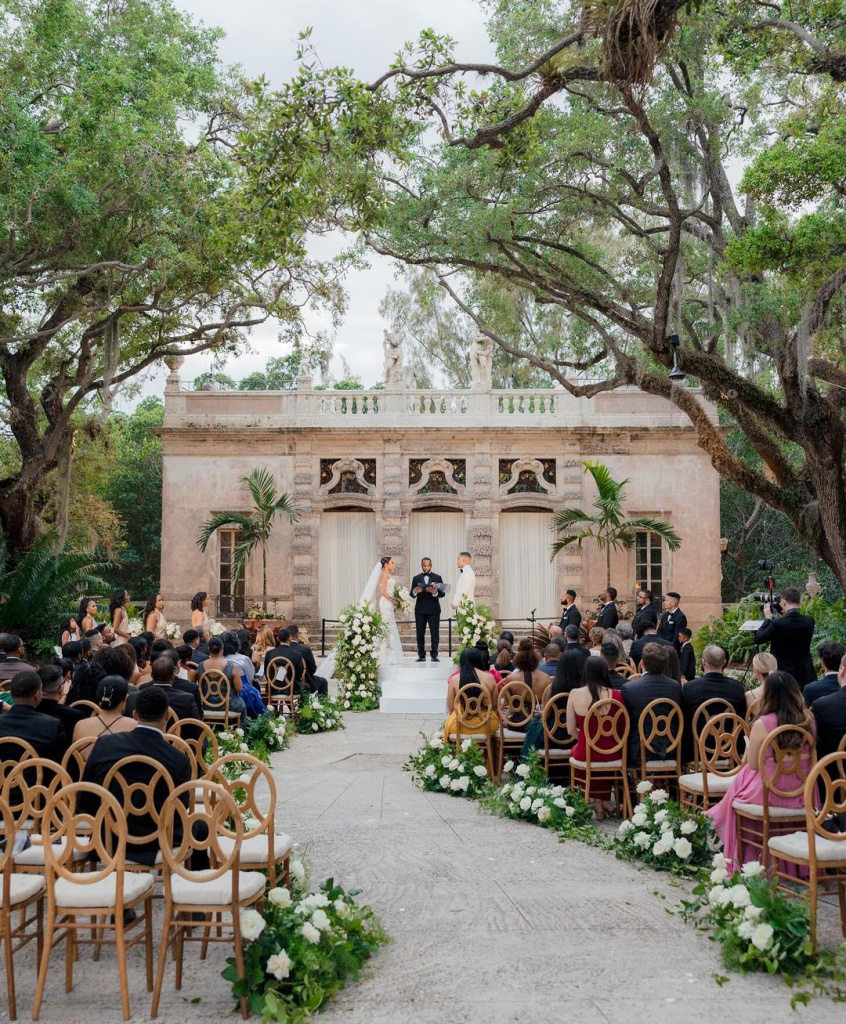
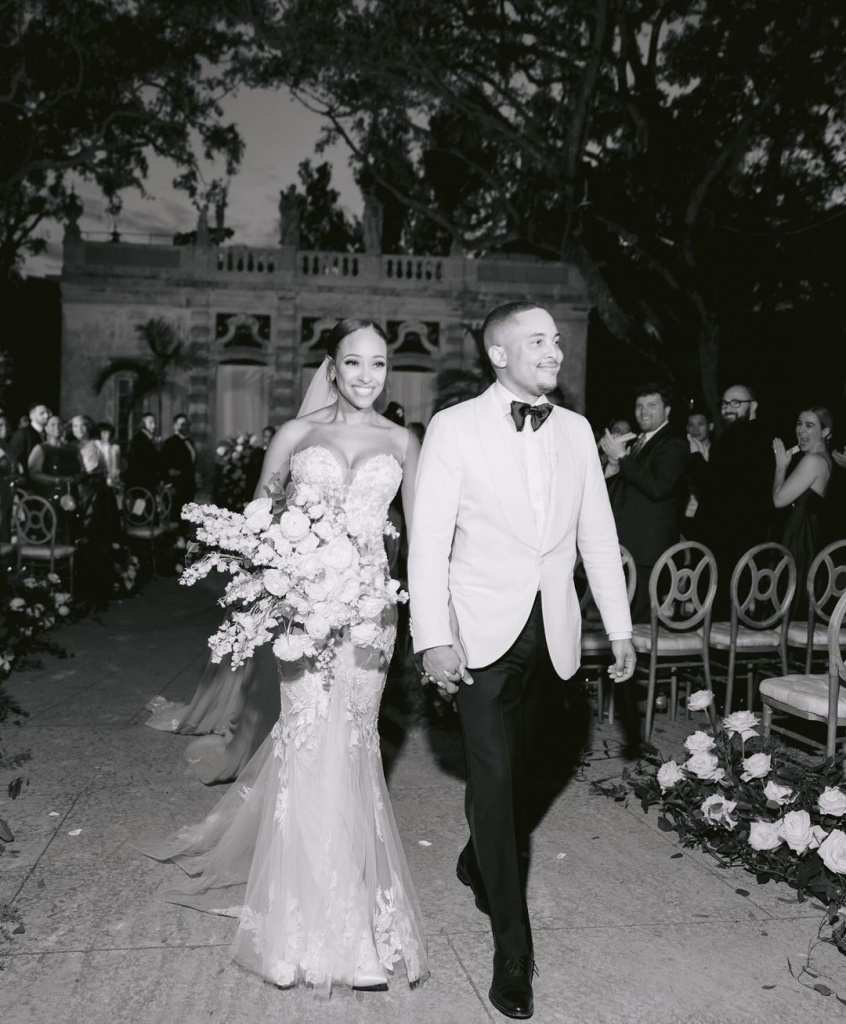
"I, [Name], take you, [Name], to be my lawfully wedded [husband/wife]. From this day forward, I promise to be by your side in sickness and in health, in joy and in sorrow, as well as through the good times and the bad. I commit to loving you unconditionally, to support you in your goals, to honor and respect you, to laugh with you and cry with you, and to cherish you for as long as we both shall live."
In Christian weddings, the exchange of vows is a sacred covenant with God and the assembly as witnesses. These vows are often spoken in the presence of a minister or priest within a church setting, emphasizing the solemnity and the spiritual dimension of the union. The tradition includes prayers, scripture readings, and blessings, enhancing the spiritual commitment the couple makes.
Muslim Wedding Vows: The Nikah Ceremony
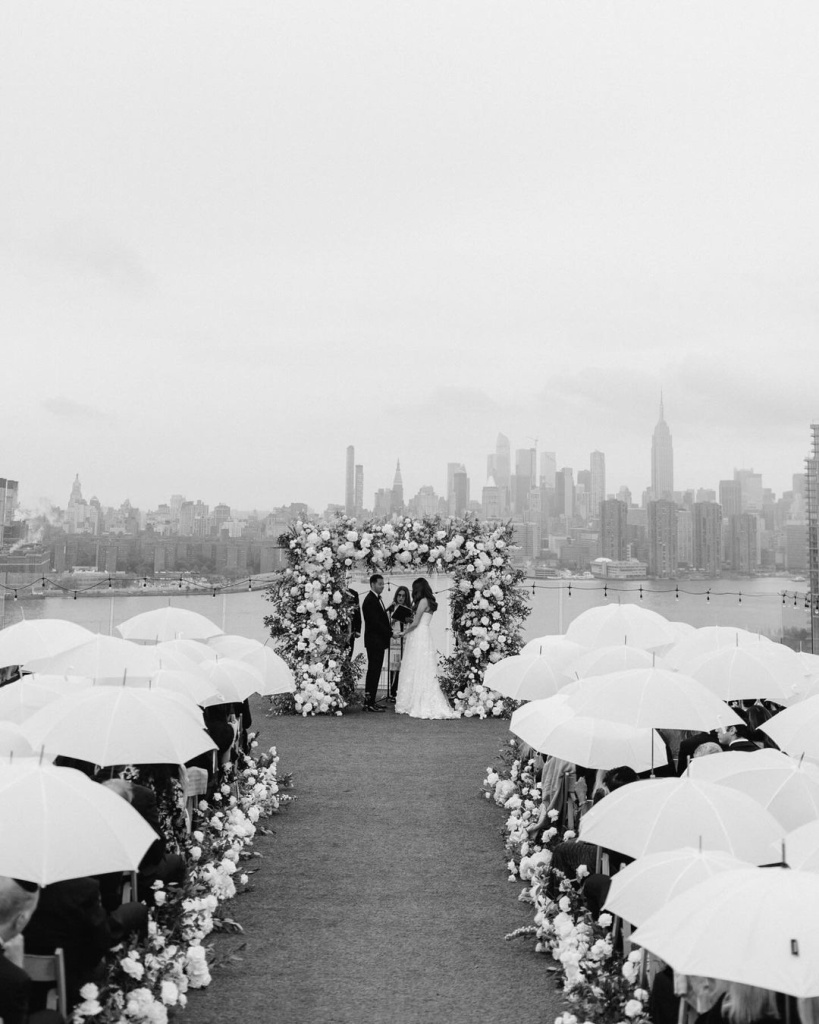
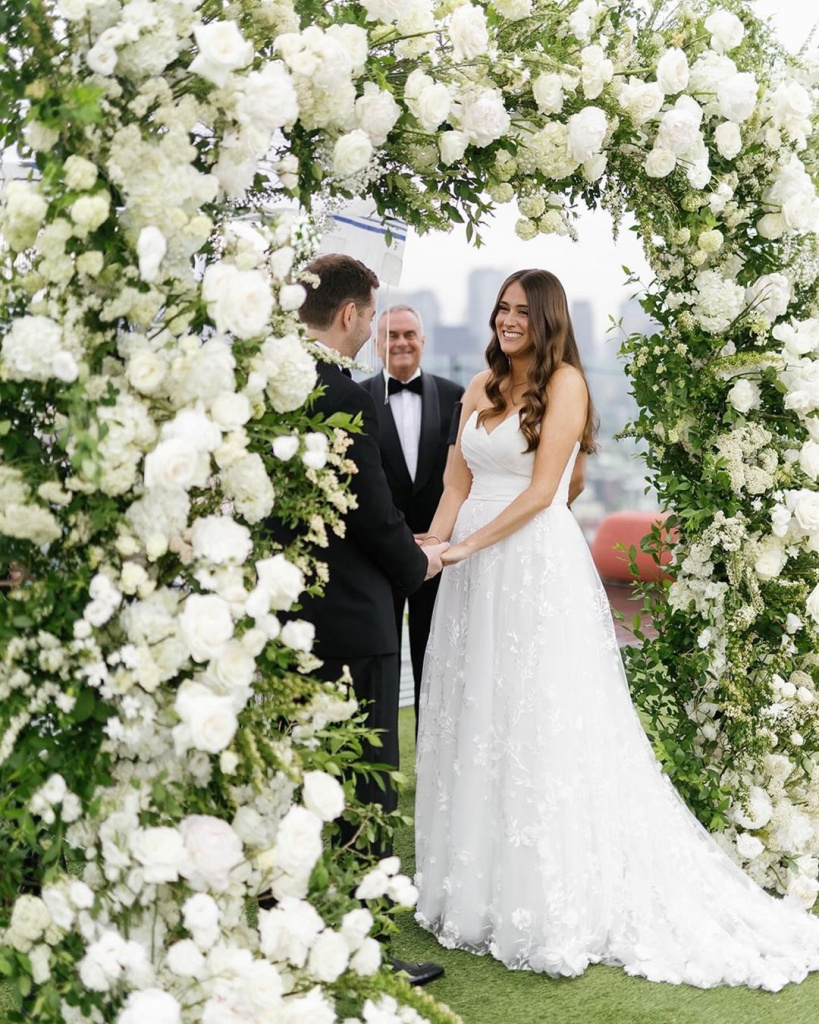
"I, [Name], offer you myself in marriage in accordance with the teachings of the Holy Quran and the Holy Prophet, peace be upon him. I pledge, in honesty and with sincerity, to be for you a faithful and supportive [husband/wife]."
The Nikah is a contractual agreement between the bride and groom as part of the Islamic wedding rites. The ceremony features a short sermon followed by the marriage proposal and acceptance, witnessed by two adults. The Nikah highlights the importance of consent from both parties and is typically followed by a festive celebration known as the Walima.
Hindu Wedding Vows: The Seven Sacred Steps
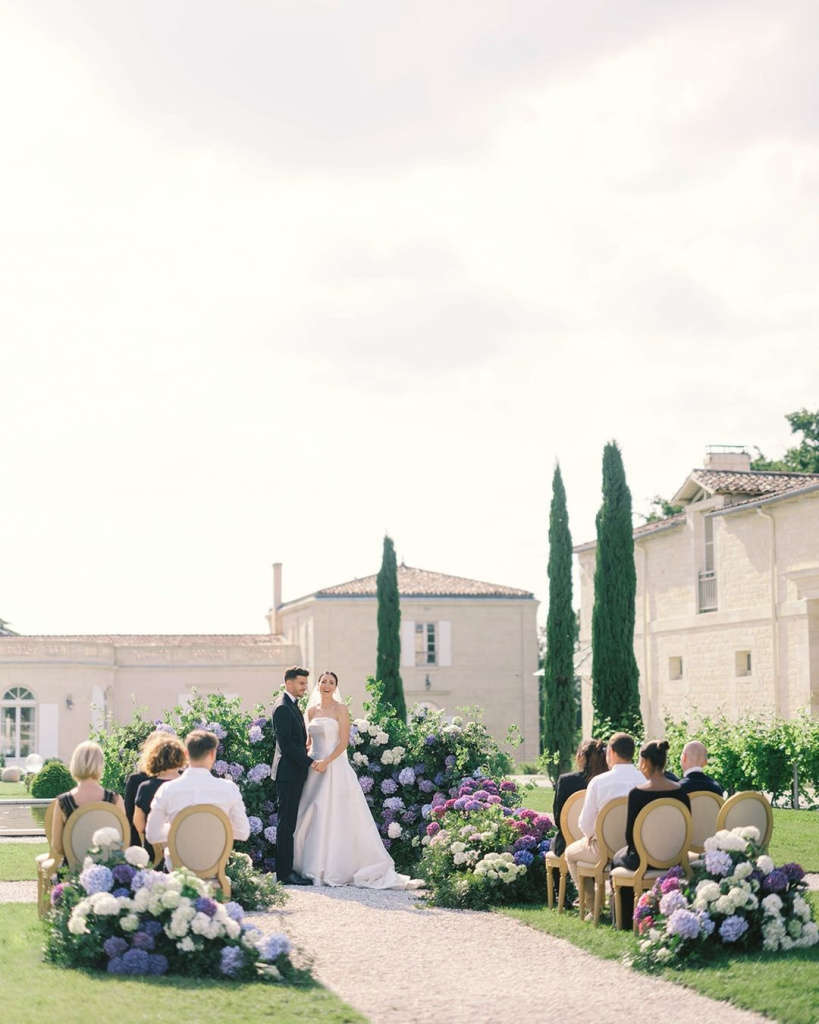
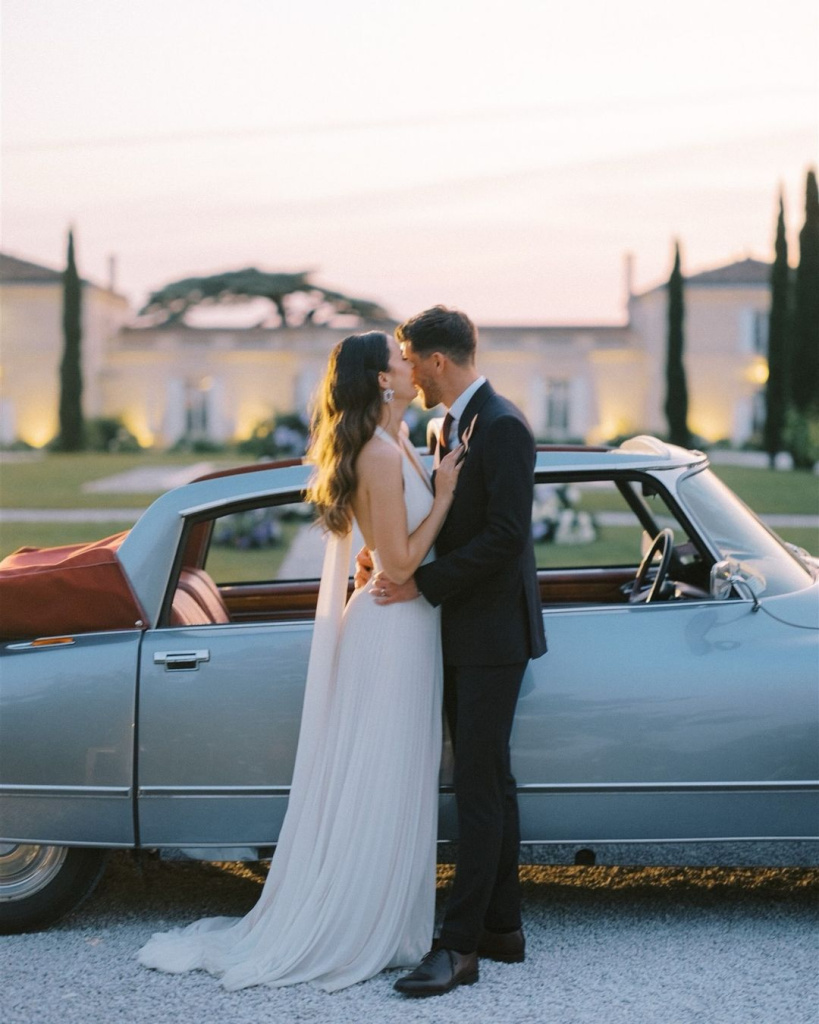
"With each step, I promise to support you and uphold our love, faith, respect, and loyalty. I vow to nourish our family and cherish you as we walk seven steps together with the holy fire as our witness."
The Saptapadi or the taking of seven steps is a core component of the Hindu wedding ceremony. Each step corresponds to a specific vow, making promises that range from providing for the family to maintaining mutual respect and health. The fire around which the couple circles symbolizes the divine witness to the vows.
Jewish Wedding Vows: The Circle of Trust
"Behold, you are consecrated to me with this ring according to the law of Moses and Israel. I promise to honor, maintain, and cherish you, according to the tradition of our ancestors."
Jewish weddings do not traditionally include spoken vows; instead, the ceremony is centered around the act of giving and receiving a ring and the pronouncement. The couple also signs a Ketubah, a marriage contract that outlines the groom's responsibilities to the bride, underscoring the commitment being made.
Buddhist Wedding Vows: A Path of Love and Harmony
"I vow to support and respect your freedom because although we may be married, we are each a separate and unique individual. Together, let us cultivate patience, kindness, and understanding towards one another as we walk this path of life."
Buddhist weddings focus on mutual respect and the importance of a harmonious relationship. The vows often reflect principles such as mindfulness and compassion. The ceremony may include chanting and meditation, reflecting the importance of a spiritual connection between the couple.
Sikh Wedding Vows: The Four Laavan of Anand Karaj
"In each round around the Guru Granth Sahib, I vow to commit myself to our partnership and to the pursuit of spiritual and worldly prosperity. I pledge to respect and support you as an equal, to share all that life offers us, and to approach every challenge with love and empathy."
In Sikh weddings, the Anand Karaj (ceremony of bliss) includes four hymns called Laavan, sung as the couple circles the Guru Granth Sahib. Each circuit represents a different stage of love and commitment, tying their spiritual journey to their physical journey together as a couple.
Quaker Wedding Vows: The Silent Affirmation
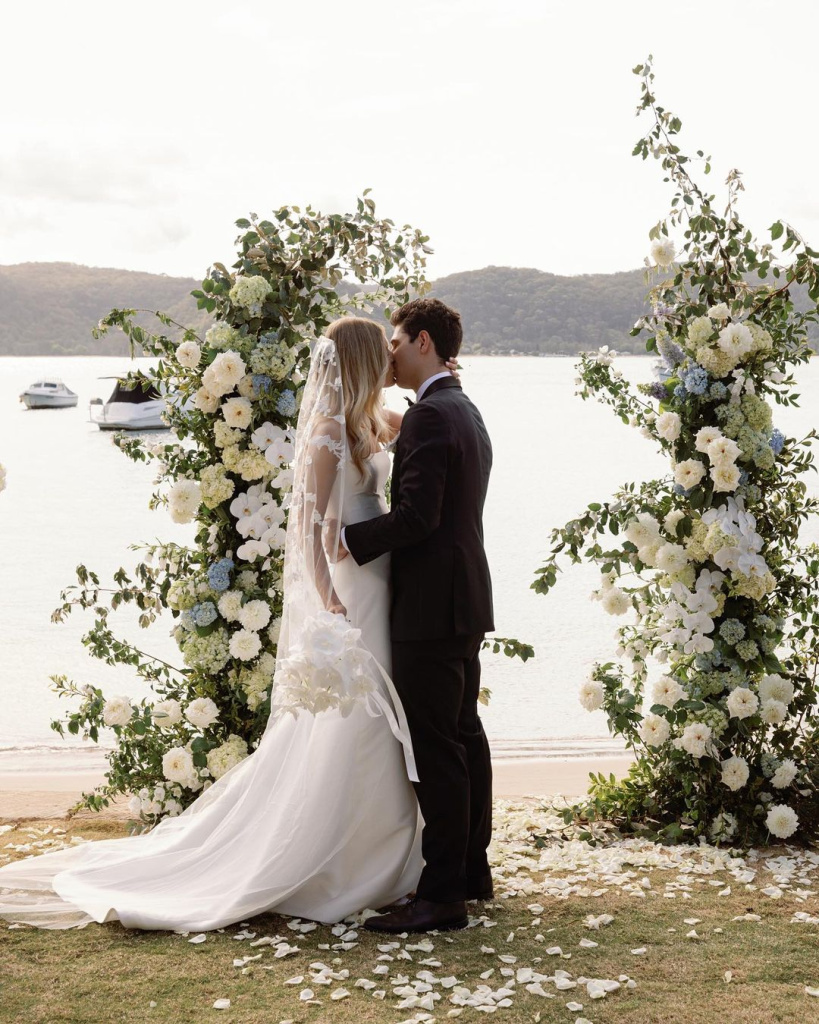
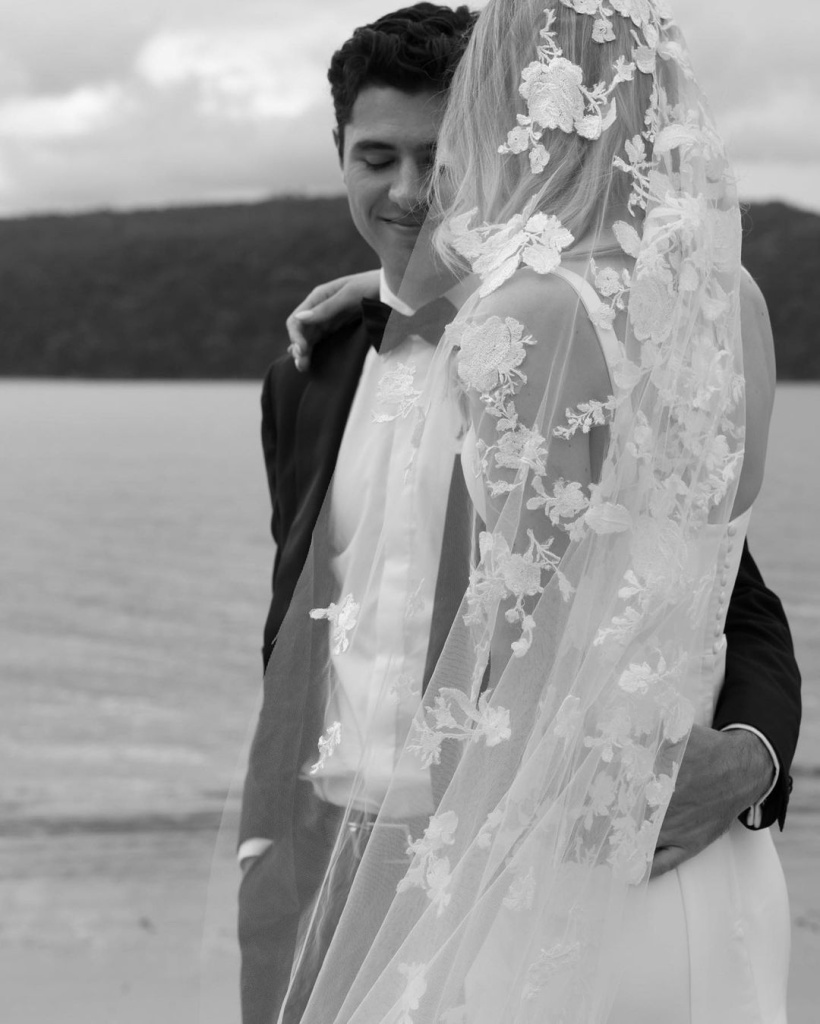
"In the presence of God and these our friends, I take thee, [Name], to be my [husband/wife], promising through divine assistance to be unto thee a loving and faithful [husband/wife] so long as we both shall live."
Quaker weddings are conducted in a meeting of silence, where the couple exchanges vows in the presence of the congregation without the lead of a clergy. The ceremony is a reflection of the Quaker belief in the inner light within every individual, emphasizing equality and sincerity.
Shinto Wedding Vows: The Essence of Simplicity
"I pledge to maintain purity in our union and to approach our marriage with sincerity, respect, and integrity, as we honor the traditions of our ancestors and the kami."
Shinto weddings emphasize the natural order and spiritual purity. The ceremony often involves ritual purification, offerings to kami (spirits), and prayers. The vows are implicit within the rituals and are more about the solemnity of the occasion than spoken words.
Pagan Wedding Vows: Celebrating Natural and Spiritual Elements
"I vow to honor, respect, and cherish you, as we walk hand-in-hand with the changing seasons. May our love be as enduring as the mountains and as constant as the tides. Together, we will create a life that respects both our individualities and our bond, celebrating the cycles of the moon and sun."
Pagan ceremonies often celebrate the elements of nature and their connection to spiritual paths. The vows might invoke the energies of natural elements such as earth, air, fire, and water, emphasizing the connection to the world around them.
Catholic Wedding Vows: The Sacrament of Matrimony
"I, [Name], take you, [Name], for my lawful [husband/wife], to have and to hold, from this day forward, for better, for worse, for richer, for poorer, in sickness and in health, until death do us part. This is my solemn vow."
Catholic weddings view marriage as a sacrament, an outward sign of an inward grace. The ceremony is typically held within a Mass, reflecting the importance of the sacramental nature of the vows. The couple promises to adhere to God's intentions for their marriage, often in the presence of many family members and friends as witnesses.
Protestant Wedding Vows: Words of Devotion and Faith
"I, [Name], take you, [Name], to be my wedded [husband/wife], to share the path that God has laid out for us. Together, we will face all life's experiences with faith and love in our hearts. I promise to cherish you, and under God's guidance, I pledge to support you and respect you as an equal partner in our marriage."
Protestant weddings can vary widely but often include a sermon, biblical readings, and personal or traditional vows. The emphasis is on the covenant made before God and the community, reflecting the couple’s faith and commitment.
Bahá'í Wedding Vows: Unity in Diversity
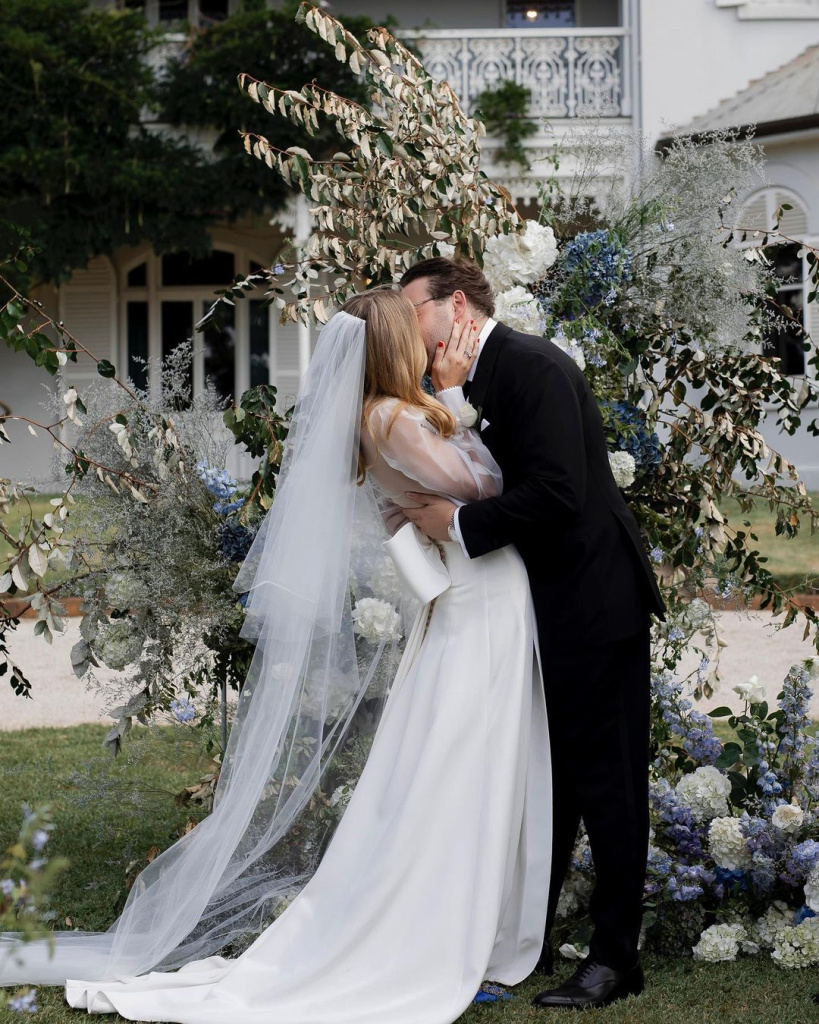
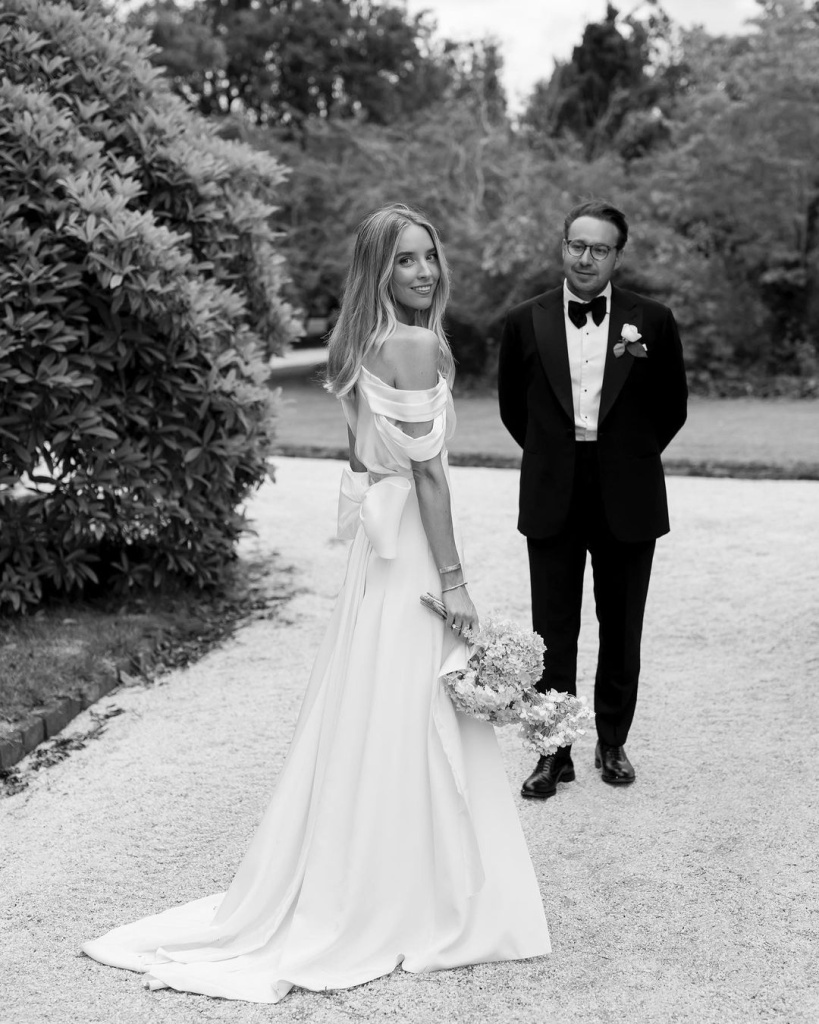
"We will all, verily, abide by the Will of God."
The Bahá'í faith emphasizes unity, and this simple vow underscores their commitment to live in harmony with each other and with divine will. The ceremony usually involves simple rituals, reflecting the inclusive and universal philosophy of the faith.
Non-Religious Wedding Vows: Personal Promises for a Secular Ceremony
"I, [Name], choose you, [Name], to be my [husband/wife]. I promise to respect you, to grow with you, and to support you through all of life's changes and challenges. I commit to share my life with you, to build our dreams together, and to foster a relationship of equality, understanding, and love."
Non-religious ceremonies focus on the personal aspects of the couple's relationship. Vows can be uniquely tailored to reflect the values and commitments that the couple holds dear, often crafted to reflect their unique journey and shared values without religious connotations.
Interfaith Wedding Vows: Embracing Shared Values
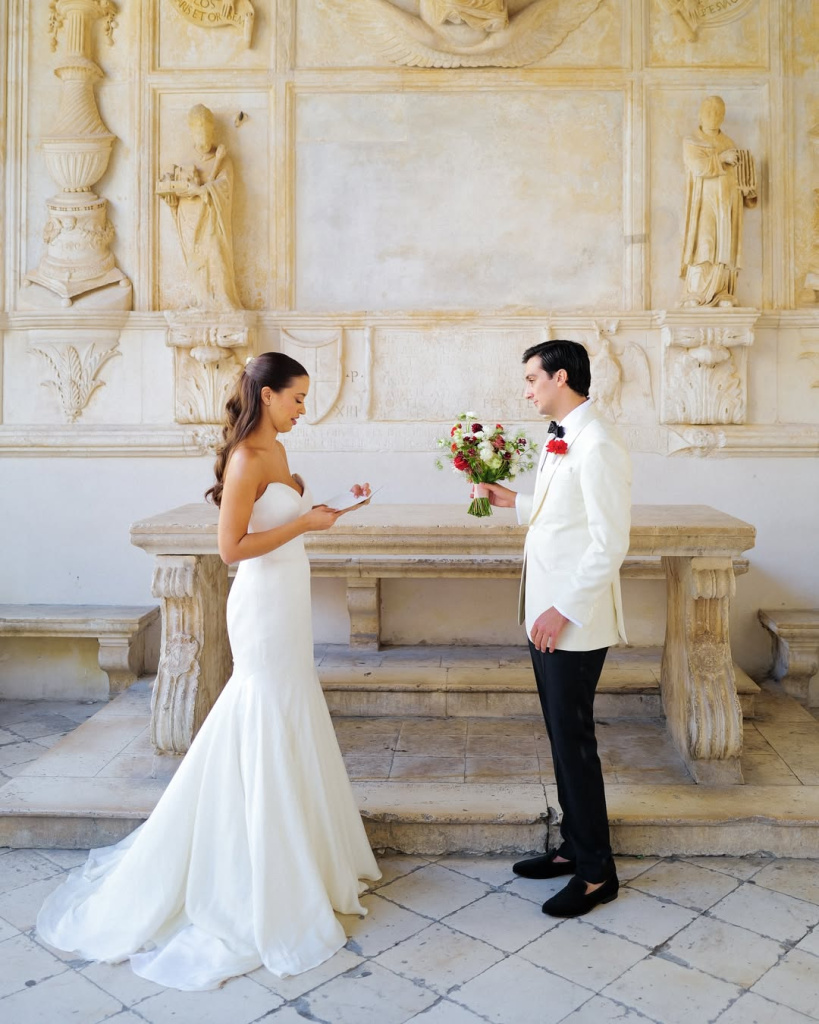
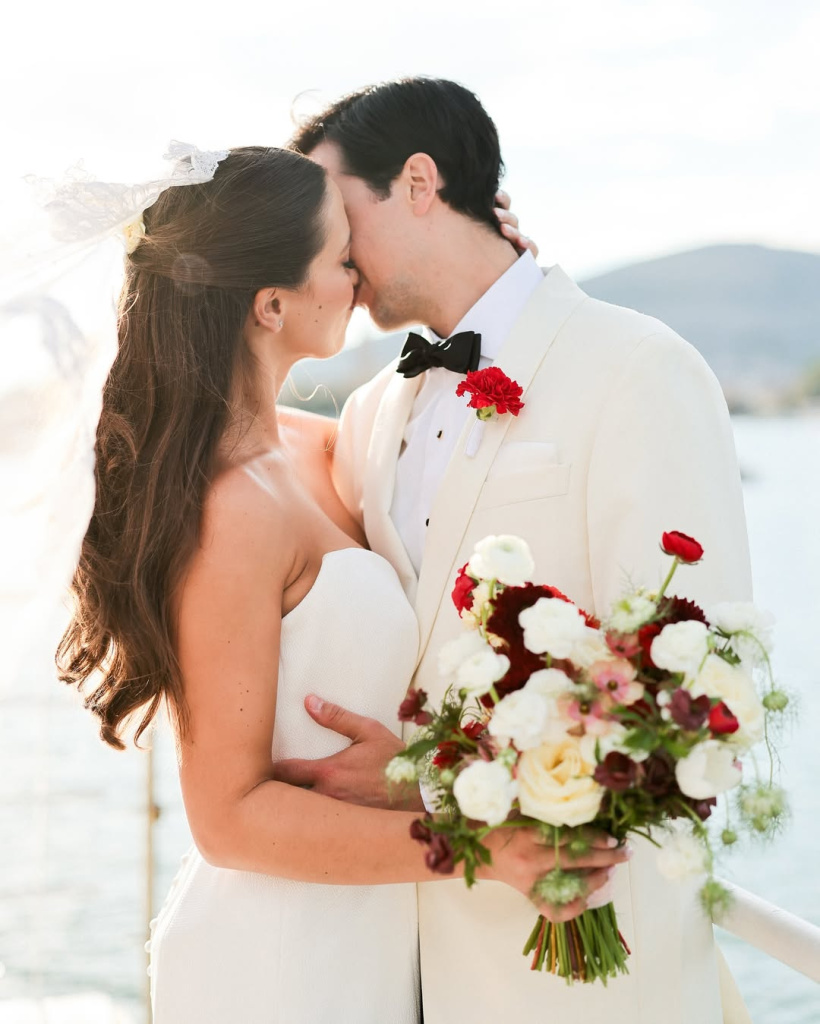
"I, [Name], take you, [Name], with all your own faiths and traditions, to be my [husband/wife]. I promise to respect your beliefs, to learn from them, and to grow with you in spirit and in truth. Together, we will build a life that cherishes our diverse backgrounds and builds a unified future."
Interfaith ceremonies blend elements from multiple religious or spiritual backgrounds, reflecting the diverse beliefs of the couple. These vows often focus on respect and unity, acknowledging and honoring each other’s faiths as an integral part of their married life.
Nondenominational Wedding Vows: Universal Commitments for All
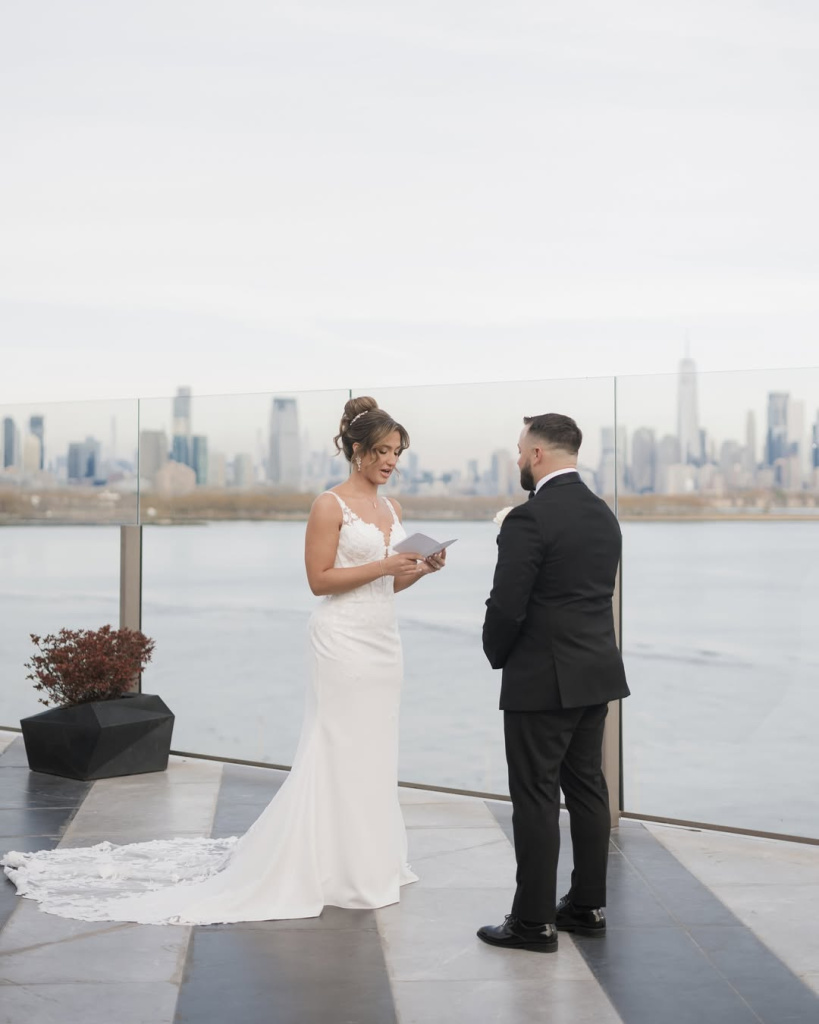
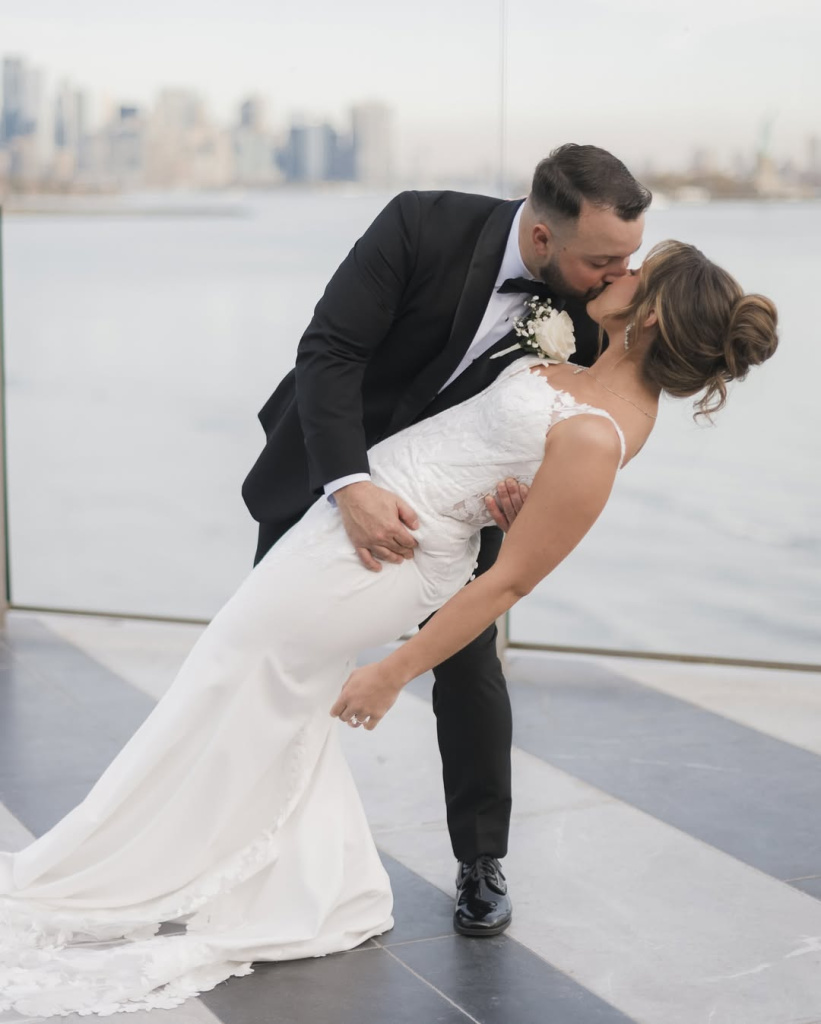
"I, [Name], take you, [Name], to be my beloved [husband/wife]. Without reservation, I give myself to you in friendship and in love. I promise to nurture our relationship, to support you in sickness and in health, and to cherish and respect you, to laugh with you and to cry with you, through all our years and all that life may bring us."
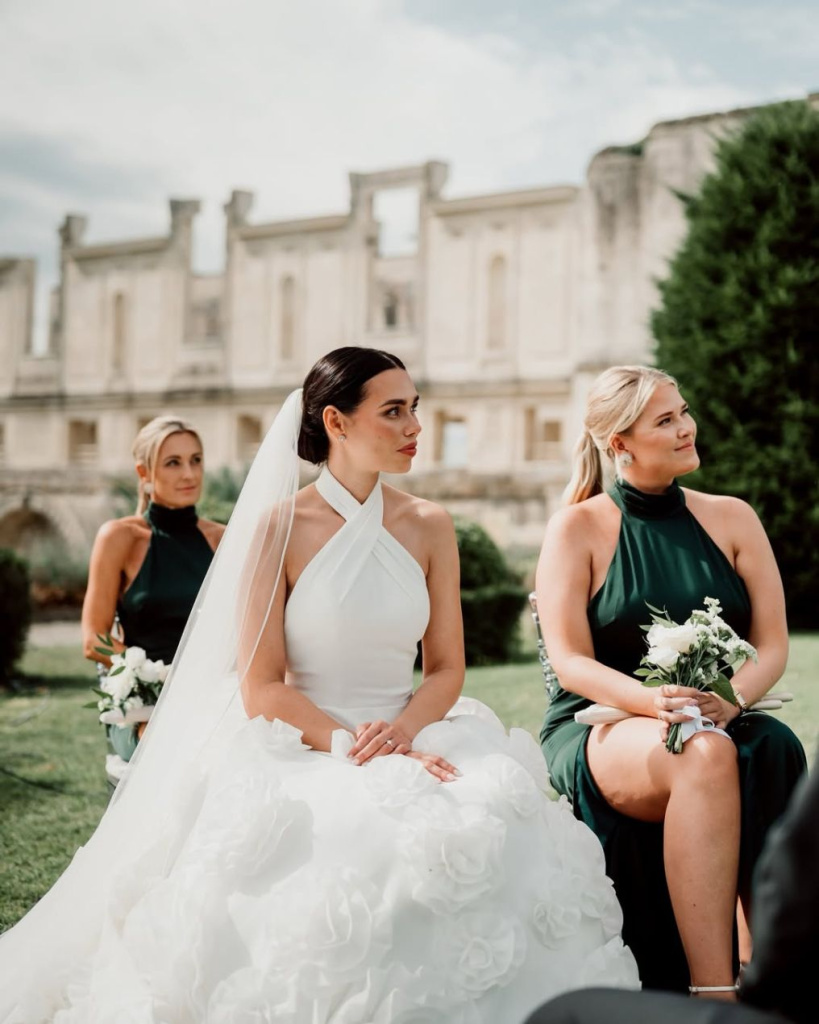
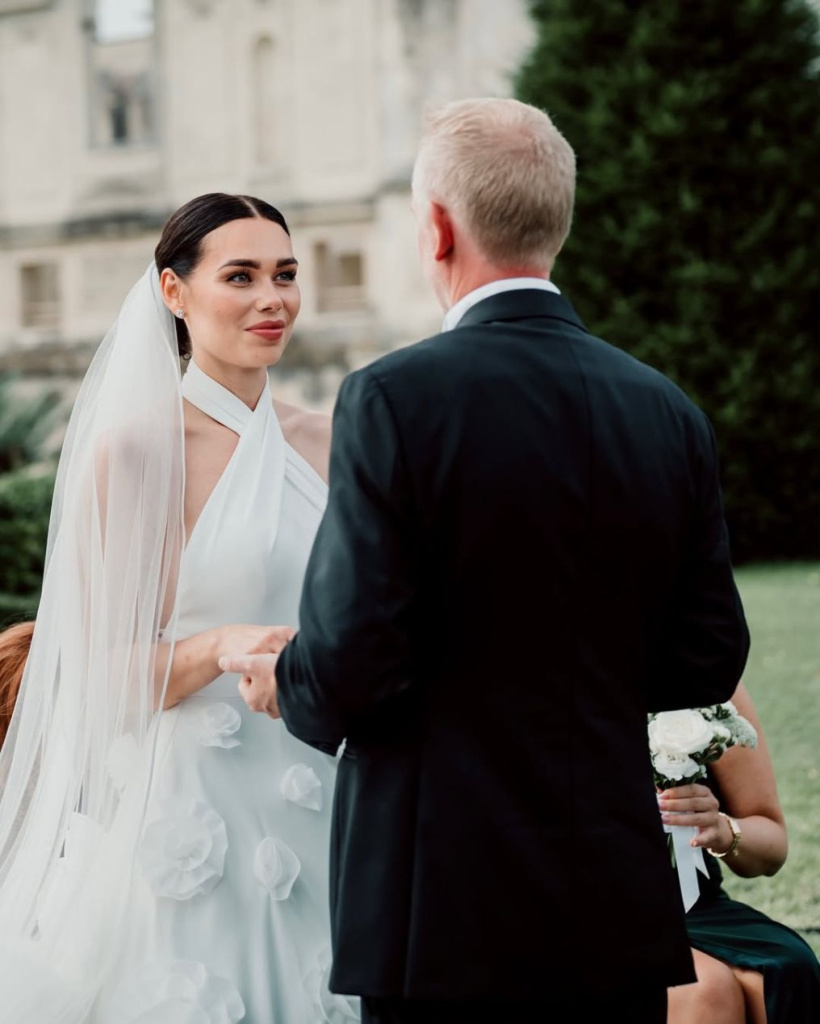
Nondenominational ceremonies are adaptable and inclusive, suitable for couples from various or non-specific spiritual backgrounds. The vows are generally universal, focusing on love, respect, and mutual support, appealing to humanistic principles rather than religious doctrines.







